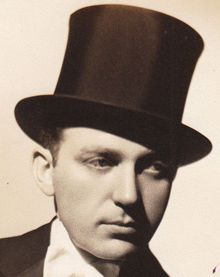
Jack Pepper was an American vaudeville dancer, singer, comedian, musician, and later in life a nightclub manager.
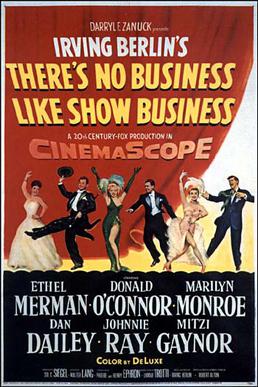
Irving Berlin's There's No Business Like Show Business is a 1954 American musical comedy-drama film directed by Walter Lang. It stars an ensemble cast, consisting of Ethel Merman, Donald O'Connor, Marilyn Monroe, Dan Dailey, Johnnie Ray, and Mitzi Gaynor.
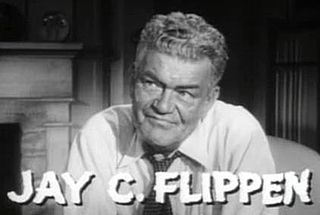
John Constantine Flippen Jr. was an American character actor who often played crusty sergeants, police officers or weary criminals in many 1940s and 1950s pictures, particularly in film noir. Before his motion-picture career he was a leading vaudeville comedian and master of ceremonies.
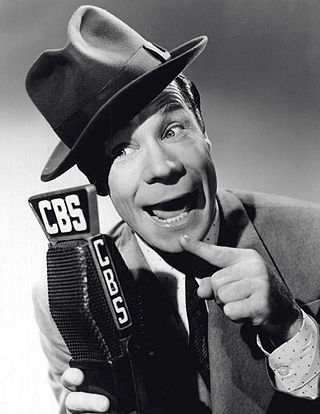
Joseph Evans Brown was an American actor and comedian, remembered for his friendly screen persona, comic timing, and enormous, elastic-mouth smile. He was one of the most popular American comedians in the 1930s and 1940s, and enjoyed lengthy careers in both motion pictures and radio. Later he became a character actor and comedian, as in Some Like It Hot (1959), in which he utters the film's famous punchline "Well, nobody's perfect."

Marilyn Miller was one of the most popular Broadway musical stars of the 1920s and early 1930s. She was an accomplished tap dancer, singer and actress, and the combination of these talents endeared her to audiences. On stage, she usually played rags-to-riches Cinderella characters who lived happily ever after. She died suddenly from complications of nasal surgery at age 37.

Tim Moore was an American vaudevillian and comic actor of the first half of the 20th century. He gained his greatest recognition in the starring role of George "Kingfish" Stevens in the CBS TV's The Amos 'n' Andy Show. He proudly stated, "I've made it a point never to tell a joke on the stage that I couldn't tell in front of my mother."

Lou Holtz was an American vaudevillian, comic actor, and theatrical producer.

Edwin Fitzgerald Jr., known professionally as Eddie Foy Jr., was an American stage, film and television actor. His career spanned six decades, beginning as part of the vaudeville act Eddie Foy and the Seven Little Foys.
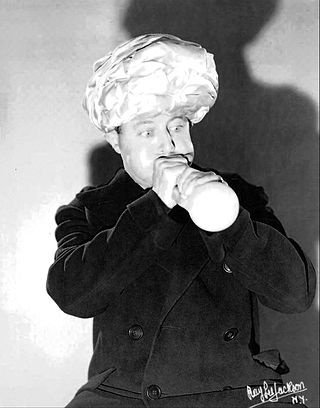
Joe Cook was an American vaudeville performer. He was a household name in the 1920s and 1930s as one of America's most popular entertainers, and he headlined at New York's famed Palace Theatre. After appearing on Broadway, he broke into radio performance.

Sunny is a 1930 American pre-Code musical comedy film directed by William A. Seiter and starring Lawrence Gray, O. P. Heggie, and Inez Courtney. It was produced and released by First National Pictures. The film was based on the Broadway stage hit, Sunny, produced by Charles Dillingham, which played from September 22, 1925, to December 11, 1926. Marilyn Miller, who had played the leading part in the Broadway production, was hired by Warner Brothers to reprise the role that made her the highest-paid star on Broadway.
Sunny is a musical comedy with music by Jerome Kern and a libretto by Oscar Hammerstein II and Otto Harbach. The plot involves Sunny, the star of a circus act, who falls for a rich playboy but comes in conflict with his snooty family. This show was the follow-up to the 1920 hit musical Sally, both starring Marilyn Miller in the title roles, and it was Kern's first musical in collaboration with Hammerstein. Sunny also became a hit, with its original Broadway production in 1925 running for 517 performances. The London production starred Binnie Hale and ran for 364 performances, while the UK national tour starred Felice Lascelles and ran for nearly three years.
Lord Byron of Broadway (1930), also known as What Price Melody?, is an American Pre-Code musical drama film, directed by Harry Beaumont and William Nigh. It was based on a best selling book by Nell Martin, which "was widely praised by critics as an extremely true and amusing romance of stage life." It was filmed in black and white with two-color Technicolor sequences.

The Brox Sisters were an American trio of singing sisters, enjoying their greatest popularity in the 1920s and early 1930s.
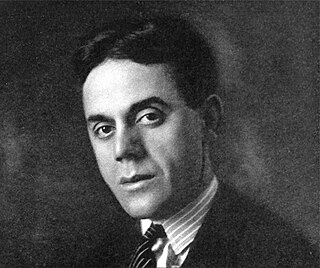
Jimmy Savo, was an American vaudeville, Broadway, nightclub, film and television performer, comedian, juggler, and mime artist.
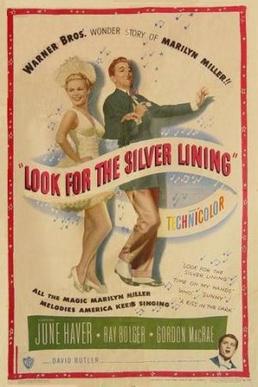
Look for the Silver Lining is a 1949 American biographical musical film directed by David Butler and written by Phoebe Ephron, Henry Ephron and Marian Spitzer. A fictionalized biography of Broadway singer-dancer Marilyn Miller, it stars June Haver and Ray Bolger. It was nominated for an Academy Award for best scoring for a musical picture in 1950.

Jack Cameron, also known as Jack Kammerer, was an American actor, singer, and acrobatic comedian whose career spanned almost five decades. He appeared in vaudeville, burlesque, film, radio, and television. Cameron was best known for his vaudeville performances, first as part of the Kammerer & Howland musical comedy act, and later as a principal comedian on the Keith-Albee circuit. He appeared in several motion pictures and could be heard on WPRO (AM) radio as the “Singing Salesman.”

Eccentric dance is a style of dance performance in which the moves are unconventional and individualistic. It developed as a genre in the United States in the late 19th and early 20th centuries as a result of the influence of African and exotic dancers on the traditional styles of clog and tap dancing. Instead of holding the body stiff and straight in the style of a jig, acrobatics such as flips and contortions were used in a more exuberant, expressive and idiosyncratic way.
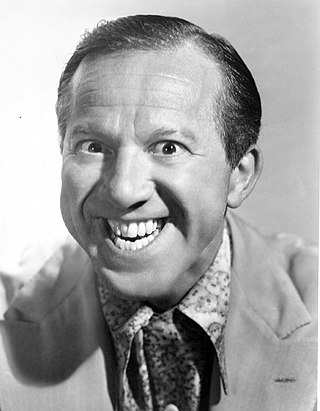
Jerry Lester was an American comedian, singer and performer on radio, television and the stage, known for playing the father of the main characters, Mike Firpo, in the comedy Odds and Evens and who hosted the first network late night television program as host of Broadway Open House on NBC, a vaudeville-esque combination of comedy and music, whose success demonstrated the potential for late-night television and led to the creation of the Tonight Show.

Harland Dixon was a Canadian-American dancer and choreographer, whose career encompassed vaudeville, musical theatre, and films. For much of his career he partnered with Jimmy Doyle, as Doyle and Dixon.
Joseph Arthur Donahue was an American dancer and film actor.

















